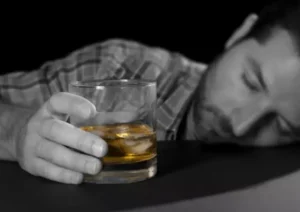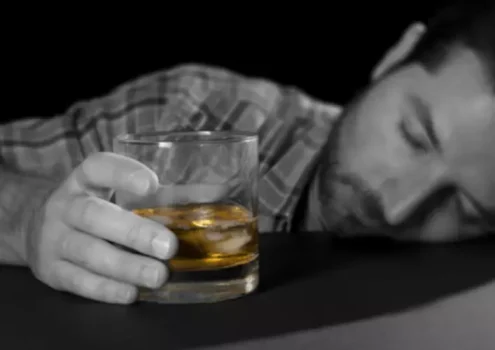Alcohol Withdrawal and Seizures: What You Need to Know

With appropriate treatment and support, full recovery from alcohol withdrawal can be achieved. Nevertheless, as individuals begin to experience improvements in their well-being, there might be a renewed urge to drink. This underscores the necessity for continued assistance and the use of non-habit-forming medications to uphold abstinence.
Living with Bipolar 1 vs. Bipolar 2: Understanding the Impact on Daily Life
- As a service to our readers, Harvard Health Publishing provides access to our library of archived content.
- We commend you for taking the first step in your recovery, and we want you to know that we are here for you.
- This figure increases to 91% for those who have remained abstinent and have attended AA for five years or more.
- Over time, your brain becomes dependent on alcohol to regulate its activity.
- Reframe supports you in reducing alcohol consumption and enhancing your well-being.
- Beta-blockers such as propranolol help manage cardiovascular symptoms like high blood pressure and rapid heart rate, reducing physical stress during withdrawal.
Over time, with proper care and support, your brain can return to a more balanced state. This adjustment is the first step toward long-term recovery and a healthier life. In a supervised setting, healthcare providers monitor your health and provide support. This makes the detox process more comfortable and increases the chances of a successful recovery. As Matt Shetler, I bring a heartfelt commitment to changing lives in the field of behavioral health, supported by my extensive experience at The River Source. My journey in integrating technology and empathy ensures individuals receive holistic care custom to both short-term detox and long-term recovery.
Alcohol Addiction Medication: Definition, Types, Benefits, Side Effects, Alternatives
Benzodiazepines are also central nervous system depressants that work in the brain the same way as alcohol. They can ease many alcohol withdrawal symptoms, allowing your body to adjust slowly. However, benzodiazepines can also be addictive, so they should be taken with a doctor’s guidance. As our body adjusts, we might experience physical withdrawal symptoms such as headache, nausea, increased heart rate, tremors, and excessive sweating. As our brain adjusts, we may experience mental and emotional symptoms such as anxiety, mood swings, insomnia, confusion, and hallucinations.
Ways to Cope With Alcohol Withdrawal & Treatment
There are no specific tests that can be used to diagnose alcohol withdrawal. An alcohol withdrawal seizure may feel like a loss of consciousness, Drug rehabilitation which you are slow to wake up from. If you are conscious during an alcohol withdrawal seizure, you may experience repetitive, uncontrolled movements of part or all of your body. Prior to the seizure, you may also experience an “aura,” consisting of an unusual visual change, smell, taste, or sound caused by abnormal brain activity.

Alcohol withdrawal seizures may begin within hours to days of stopping alcohol use or starting an alcohol detox. The timeframe will be different for everyone, but seizures will normally start within the first 72 hours. Long-term alcohol use can increase your risk of developing epilepsy, a condition where you are prone to having seizures. While the reason for this is not fully understood, alcohol does create changes in receptors in your brain that affect your likelihood of having a seizure. While epilepsy can develop on its own in people who do not use alcohol, long-term alcohol use will increase the risk of epilepsy developing in some people. Alcohol acts by stimulating receptors in your brain that cause brain activity to be suppressed.
Medical Conditions That Increase Your Risk

However, alcohol, along with other depressants, is among the most dangerous substances during the withdrawal phase, especially if you quit cold turkey. The overstimulating effects of alcohol withdrawal can lead to increased blood pressure, heart palpitations, sleeplessness, fever, hallucinations, panic, and seizures. What causes alcohol withdrawal seizures, are there any warning signs, and how can alcohol dependence be treated safely.
Study selection

An imbalance in your nervous system can result in alcohol withdrawal when you suddenly stop drinking. AA and other support groups can be helpful in quitting drinking, but you can find assistance in other ways. Therapy is effective in helping people quit, as is medication prescribed by a healthcare provider. Our individualized recovery plans are custom to meet each client’s unique needs. We believe that no two recovery journeys are the same, and our dedicated team works closely with each client to craft a plan that addresses their specific challenges and goals.
Understanding if you are at risk of an alcohol withdrawal seizure is an important step when you are considering stopping alcohol use, especially after long-term or heavy drinking. Certain personal and medical factors can increase the likelihood of seizures during withdrawal, and being aware of these risks helps you take the right precautions in order to stay safe. The duration of alcohol withdrawal can vary depending on the alcohol withdrawal seizure individual’s drinking history, overall health, and other factors.

Medical professionals are integral in addressing symptoms as they emerge and equipping patients for a positive outcome during the withdrawal period. Acknowledging these hazards is key to securing a safe and successful detoxification from alcohol. In animal models, repeated episodes of withdrawal lead to an increase in the frequency, duration and severity of seizures. They can be fatal, but modern medications like benzodiazepines have made detox much safer than in the past. If you are mildly or even moderately dependent on alcohol, you are not likely to experience seizures.




No comments